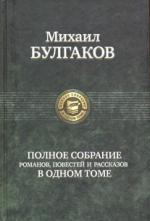|
This section contains 12,731 words (approx. 43 pages at 300 words per page) |

|
Dictionary of Literary Biography on Mikhail (Afanas'evich) Bulgakov
Mikhail Bulgakov wrote prolifically during a time when old social orders were breaking down and traditional values were rejected. In his story "No. 13. Dom El'pit-Rabkommuna" (No. 13. The Elpit-Rabkommun House, 1922), which describes the destruction of an historic building, the narrator says: "It was a glorious time . . . And then there was nothing. Sic transit gloria mundi! It's terrible to live, when kingdoms are falling." The heroes of Bulgakov's work--often engaged in creative pursuits of some kind--find it difficult to survive in a changing world. So, too, did Bulgakov struggle to write as the prerevolutionary Russia of his childhood and young adulthood crumbled around him. In "Kiev-gorod" (Kiev-Town, 1923) Bulgakov describes his youth as a lost paradise, a motif that occurs repeatedly in his work:
No eto byli vremena legendarnye, te vremena, kogda v sadakh samogo prekrasnogo goroda nashei Rodiny zhilo bespechal'noe, iunoe pokolenie. Togda-to v serdtsakh u etogo pokoleniia rodilas' uverennost'...
|
This section contains 12,731 words (approx. 43 pages at 300 words per page) |

|


